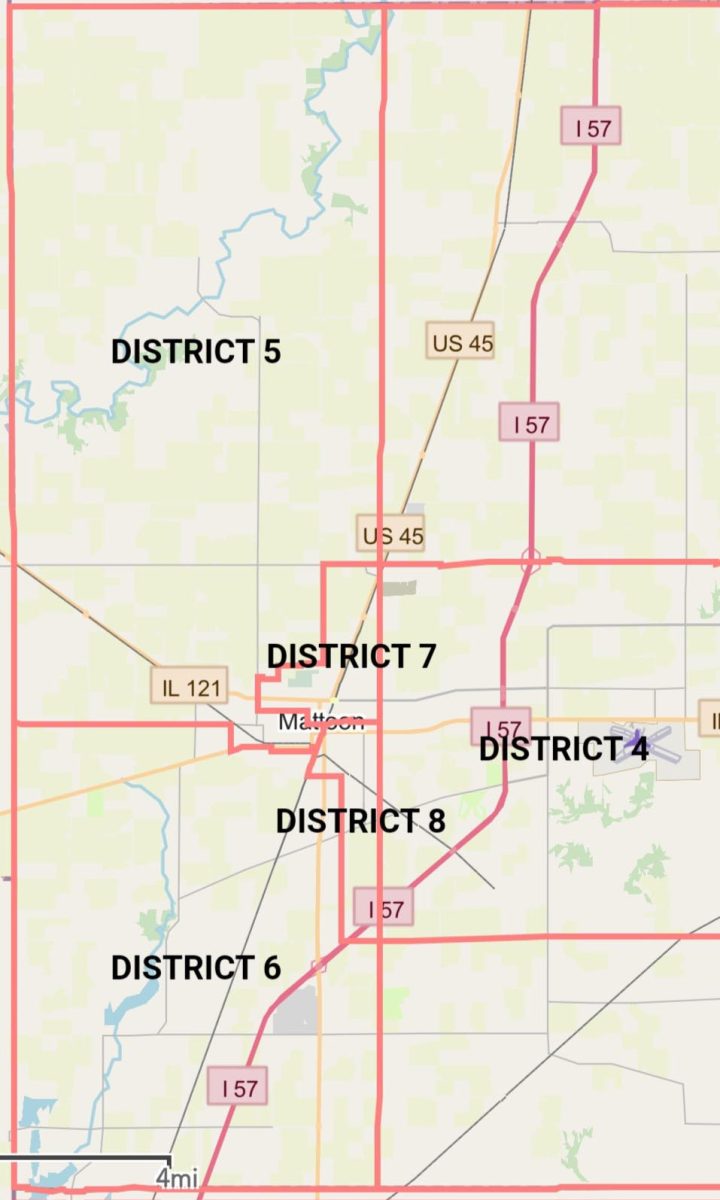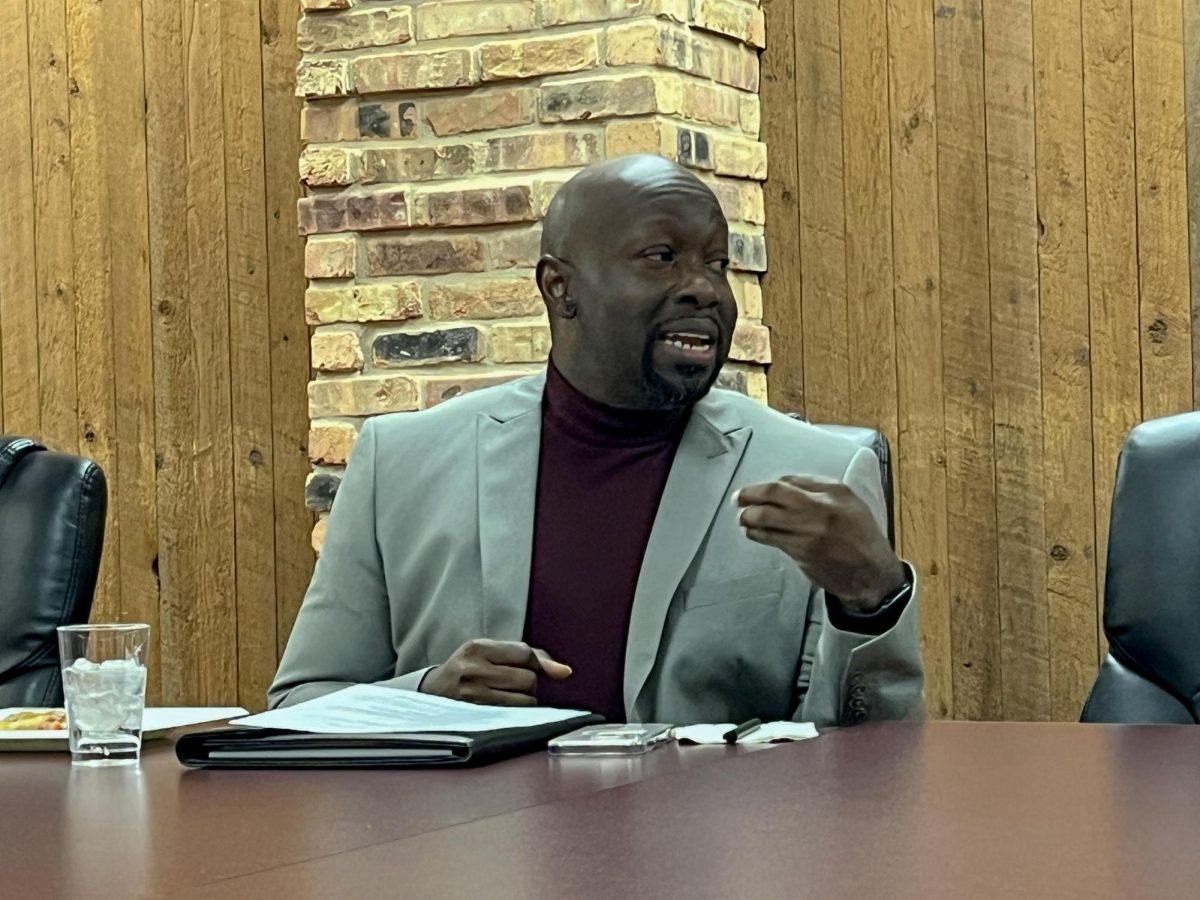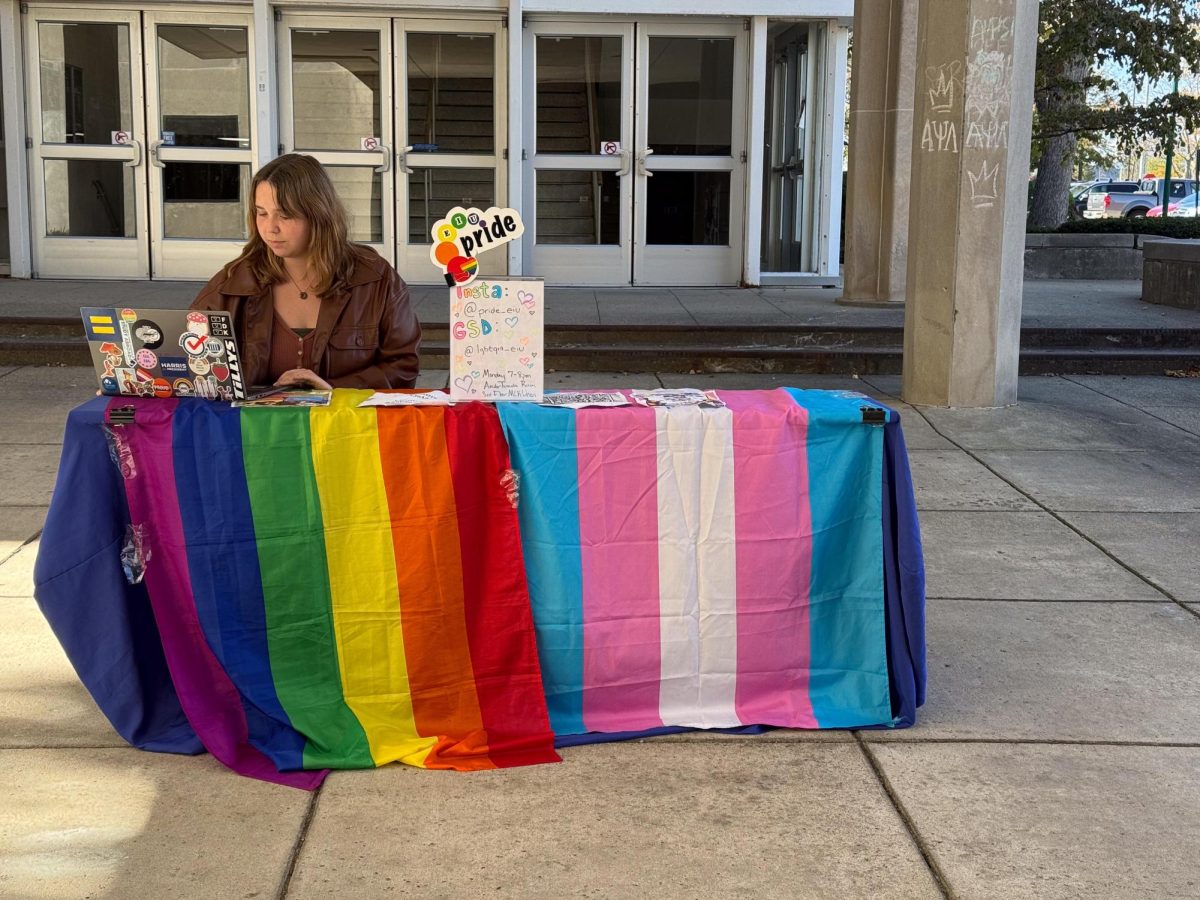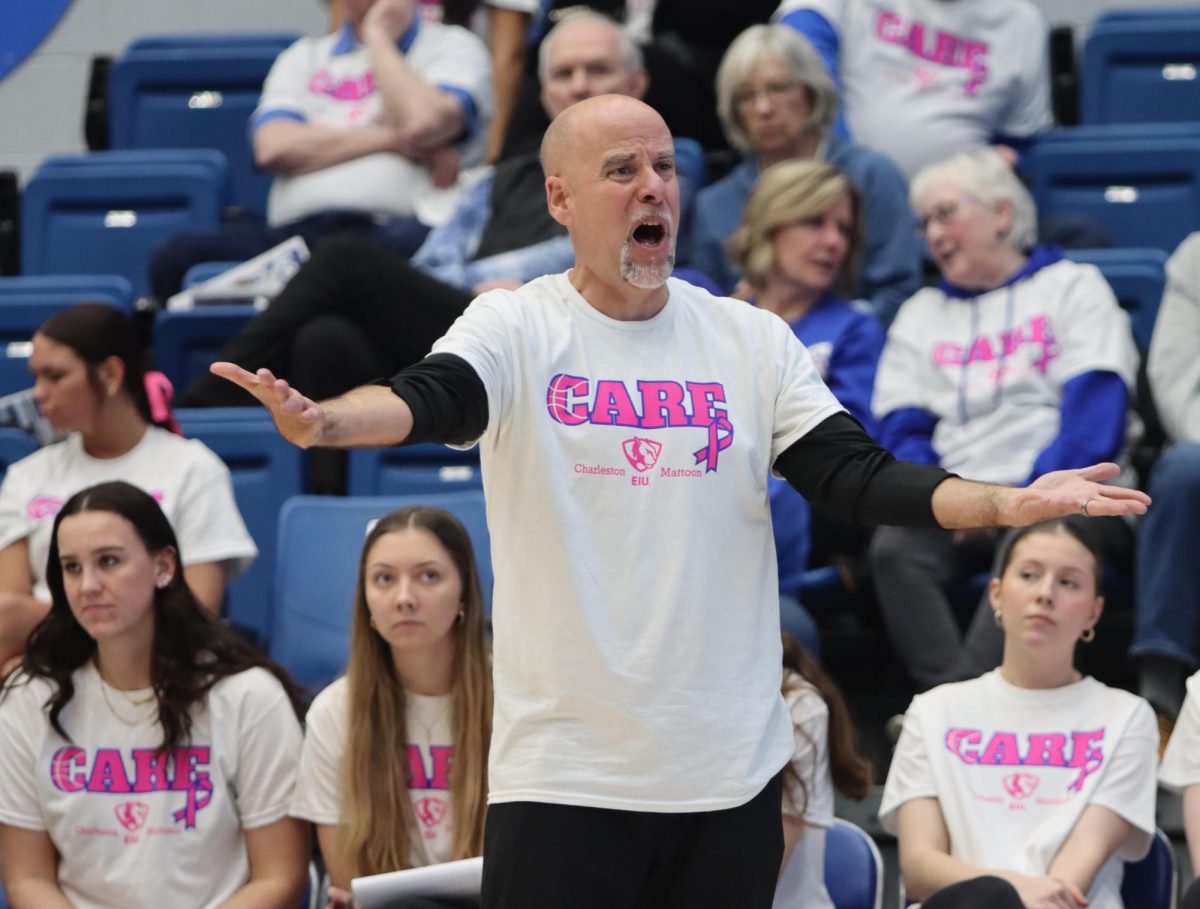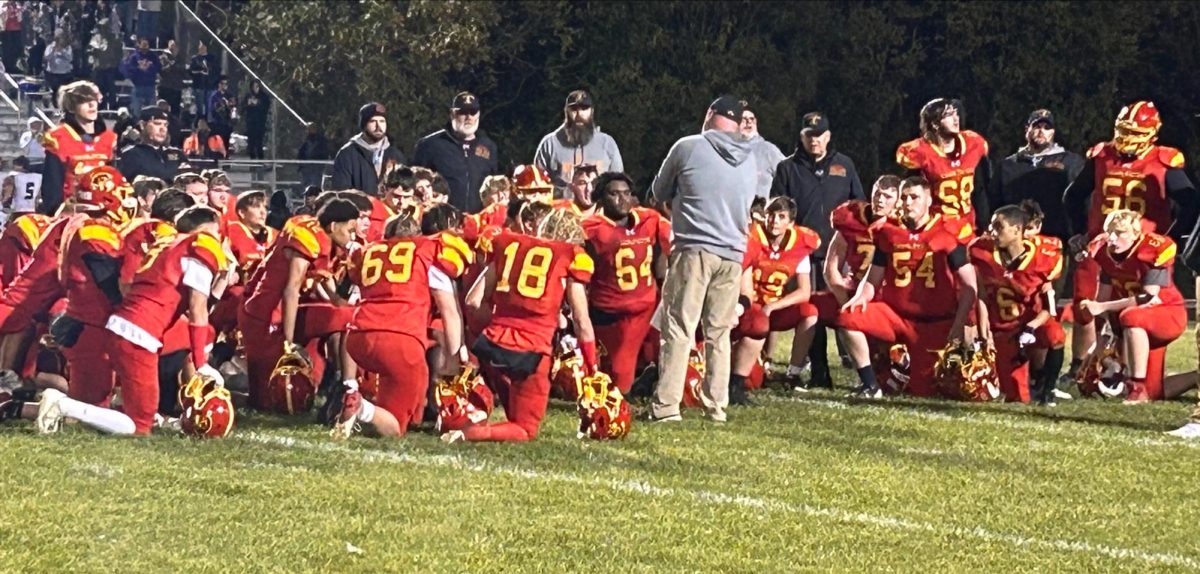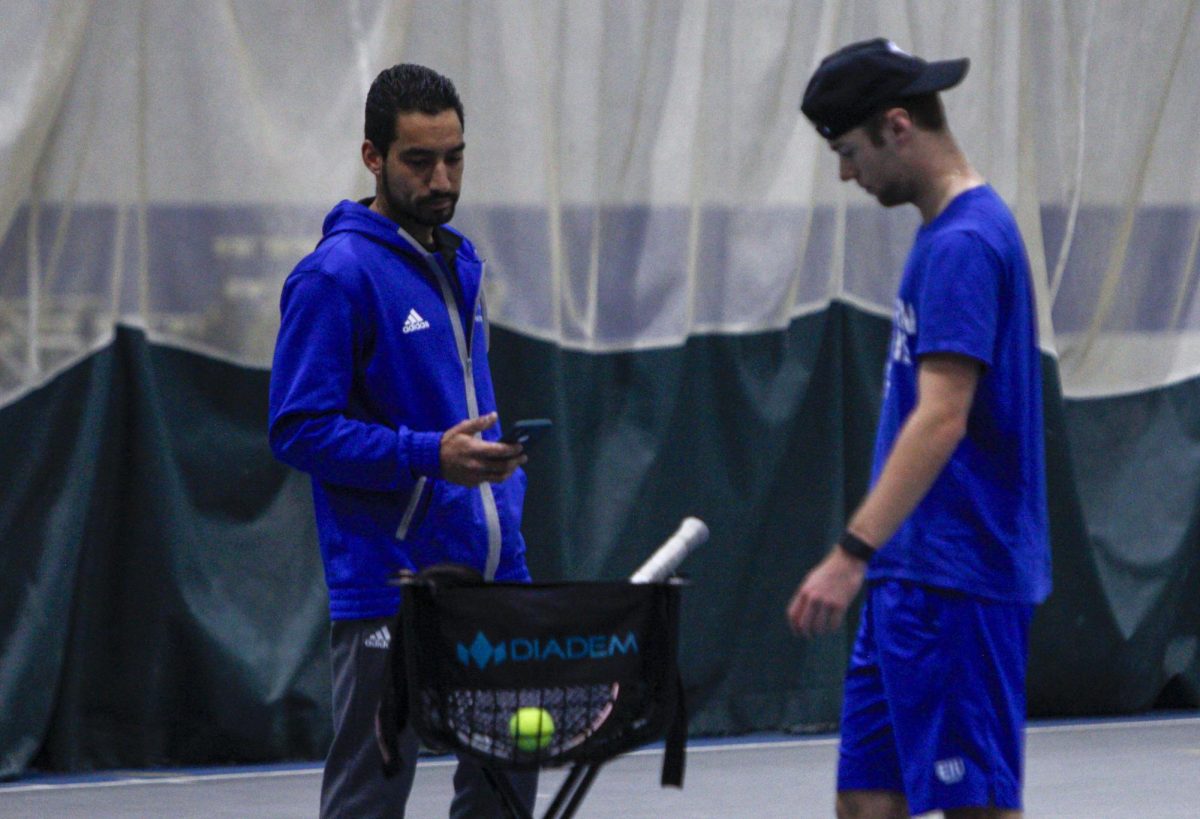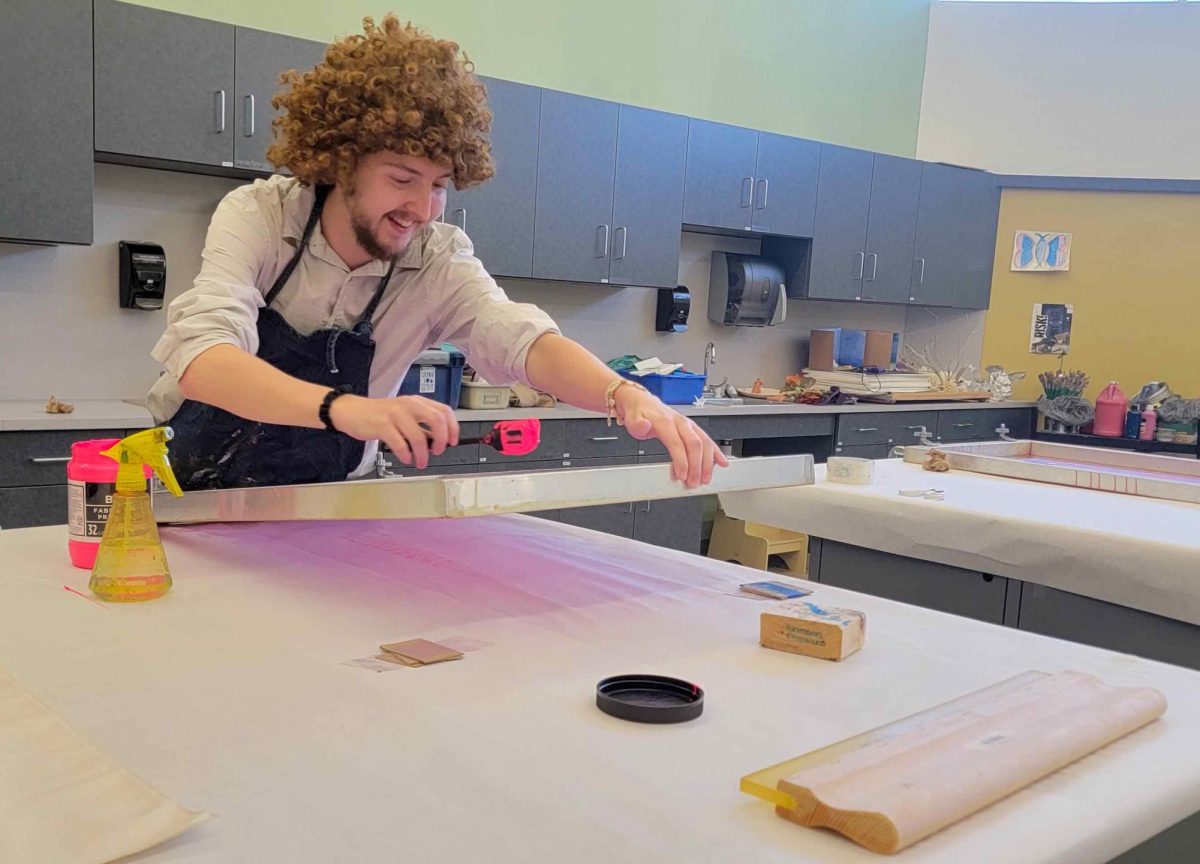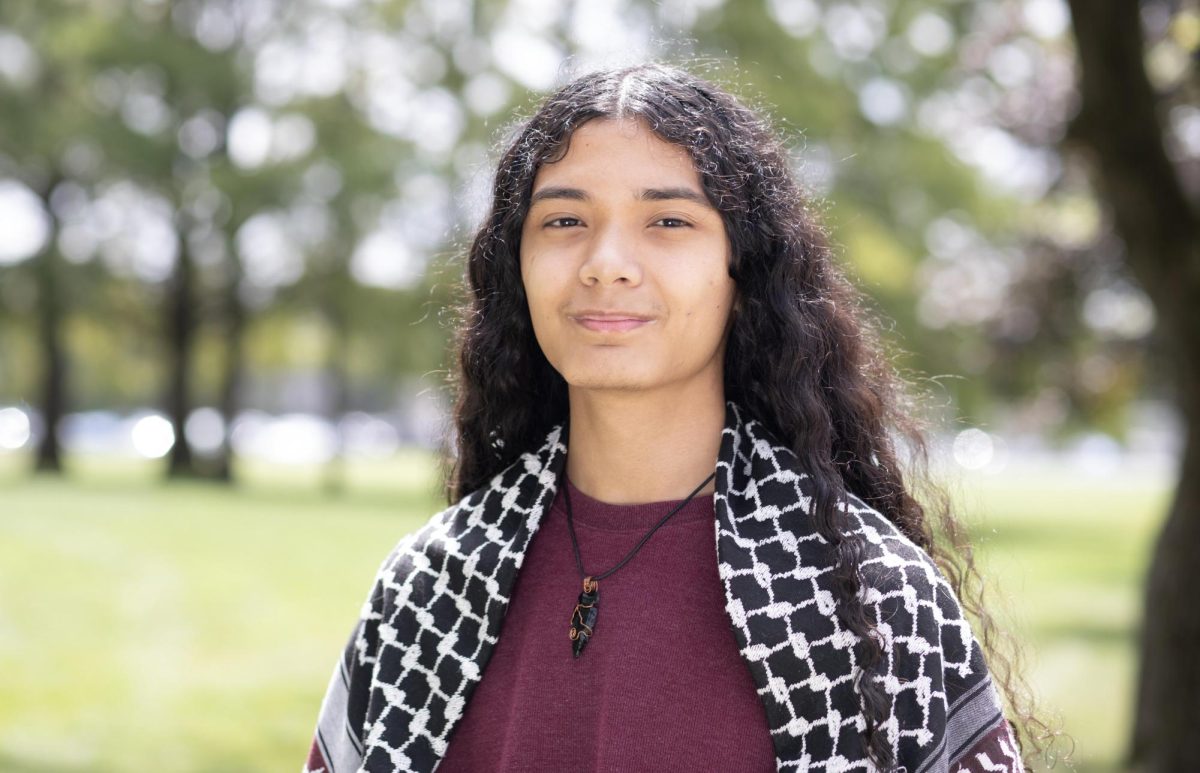Column: Cherokee language fights to save dying words
O si yo. From the moment I read the sign after pulling into Tahlequah, Okla. last Sunday, I knew I was out of my element. The sign welcoming me with a simple “hello” was in Cherokee.
Over spring break I went on an Alternative Spring Break trip to work with the Cherokee Nation Head Start program for children.
Tahlequah is in the Cherokee Nation and approximately 34 percent of the population is Cherokee.
Everywhere I went I saw road signs and pamphlets in Cherokee and, to my relief, English.
Like other Native American languages, after decades of children at boarding schools being punished for speaking Cherokee, the language is now endangered.
Countless times last week I heard stories from people who wished they could speak Cherokee, but did not because their grandparents had been afraid to teach it to their children.
The United Nations Educational, Scientific and Cultural Organization estimates that since 1950 1,907 world languages have gone extinct, become endangered or are now vulnerable.
The U.S. has 191 of those endangered languages, one of which is Cherokee. Cherokee has an estimated 12,000 to 22,000 speakers, most of whom are in Oklahoma or North Carolina.
In other words, the number of people who speak Cherokee in the world is equal to the population of Charleston, either with or without students.
Everywhere I went in Oklahoma I saw evidence of poverty and a community struggling. Billboards along the main roads discouraged elder and domestic abuse. Posters in the classrooms I worked in provided information on shaken baby syndrome and fetal alcohol syndrome.
Despite, or maybe because of, all of these social issues, people in the community are fighting for and intensifying efforts to recover their language. Local schools have initiated an immersion program where elementary school children speak only Cherokee in school.
Since 2003, Apple computers come installed with a Cherokee font and in 2010 Apple developed Cherokee language software for the iPhone, iPod and iPad.
Many other communities are not able to take such intense measures to preserve their language. Around the world, languages are dying out because of oppression or lack of alternatives for the native speakers.
Loss of language is more dire than people think; it is like the loss of a species. When a language goes extinct, not only does it mean a loss of cultural diversity, the global community loses whatever cache of information is stored in that language.
The week before break I watched the film “The Linguists” in the Doudna Fine Arts Center, followed by a question and answer session with the director and one of the linguists.
The film, which was featured at the Sundance Film Festival, follows two linguists as they travel around the world attempting to record endangered languages before they went extinct.
The overarching message I took from the film and discussion is that there is knowledge encoded in every language that is lost when the speakers die. The linguist David Harrison pointed to the examples of indigenous South American languages that have thousands of words for medicinal plants located in the surrounding forests. When those languages die out, we lose the knowledge, and any resulting benefits, about those plants.
Before last week I had never been anywhere where I did not know the language being spoken around me. When I was younger I had always assumed everyone spoke English. As I grew up it was easier to want everyone to speak English. But now I’ve realized that a world where everyone can understand everyone is not necessarily the world we should be living in.
Emily Steele is a senior journalism major. She can be reached at 581-2812



